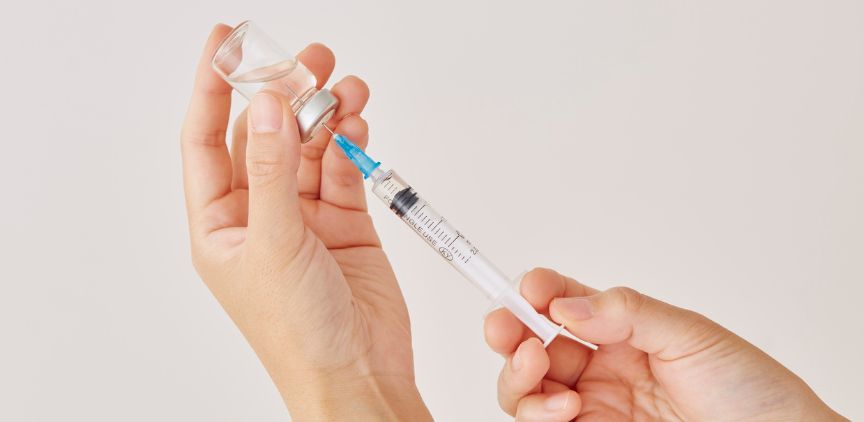Medical and Lifestyle Options to Ask Your Doctor About
Hereditary angioedema (HAE) is a rare condition that causes sudden, sometimes severe swelling in different parts of the body. These episodes can affect the hands, feet, stomach, face or throat. While HAE is not an allergic reaction, it can still be very painful and, if the airway is involved, life-threatening. Thankfully, there are now several options for treating hereditary angioedema that can both prevent attacks and stop them quickly once they begin.
Haegarda: A Key Preventive Treatment
One of the leading treatments for HAE prevention is Haegarda. People with HAE have low levels or a faulty version of a protein called C1-esterase inhibitor. Without enough of this protein, the body produces too much of a substance called bradykinin, which makes blood vessels leak fluid. This leakage is what causes swelling.
Haegarda is a man-made version of the missing protein. It replaces what the body cannot make on its own and helps keep bradykinin under control. By doing this, it reduces the number of swelling attacks.
Haegarda is given as a small injection under the skin, usually twice a week. Most patients learn how to give themselves the injection at home, making treatment easier to manage. The main side effects are mild, such as redness or discomfort where the needle goes in. Haegarda doesn’t stop an attack once it starts, but it works well to prevent them from happening in the first place.
Other Medical Options for Preventing Attacks
Not every patient responds the same way to Haegarda, so doctors may recommend other preventive medications.
Takhzyro (lanadelumab) is another option. Instead of replacing the missing protein, it blocks a step in the chain reaction that leads to swelling. This medicine is injected every two to four weeks and has been shown to greatly reduce attacks.
Another newer drug is donidalorsen, which works at the genetic level to lower production of a protein that fuels swelling. Older oral medicines like danazol are still sometimes used, but they can cause more side effects and are less common now that newer choices exist.
On-demand Treatment for Active Attacks
Even with prevention, many people with HAE will still experience attacks from time to time. That’s why every patient should also have medicine ready to use at the very first sign of swelling.
One of the most common rescue medications is icatibant (Firazyr), an injection that blocks the effects of bradykinin. Another option is C1-inhibitor concentrate, given either by injection or infusion to replace the missing protein directly.
There are also medicines like ecallantide (Kalbitor), which stop swelling by blocking enzymes that help make bradykinin. And more recently, oral pills such as sebetralstat have been approved, offering patients a convenient alternative to injections.
These treatments work best when used early, so people with HAE are encouraged to treat symptoms right away rather than waiting to see if they improve.
Lifestyle and Natural Support
Medication is the most important part of HAE care, but healthy habits and awareness can also make a difference.
Avoiding Triggers
Certain things can set off attacks, such as stress, illness, dental work or even minor injuries. Some medications, like blood pressure drugs called ACE inhibitors, are known to make swelling worse and should be avoided in people with HAE.
Staying Healthy
Good dental care, quick treatment of colds or infections and staying hydrated can help lower the risk of swelling episodes. Stress is another big trigger, so managing it with relaxation techniques like meditation, yoga or gentle exercise can be helpful.
Planning Ahead
Keeping a diary of attacks can help identify triggers. Wearing a medical alert bracelet or necklace is also wise, so that emergency responders know right away that swelling is due to HAE and not a typical allergic reaction. Carrying emergency medicine at all times is another essential safety step.
Recognizing Symptoms
HAE attacks can look different from person to person. Common signs include:
- Swelling in the face, lips, hands, feet or genitals.
- Sudden stomach pain, nausea, vomiting or bloating.
- A feeling of tightness in the throat, trouble swallowing or voice changes.
When to Seek Emergency Care
Most swelling in the hands or feet, while painful, is not life-threatening. However, swelling in the throat or airway is extremely dangerous. If you ever notice swelling in the tongue, throat or voice box—especially if breathing or swallowing becomes difficult—call 911 right away. Even if you have rescue medication, emergency help is essential when the airway is involved.
Hereditary angioedema can feel unpredictable, but treatment has advanced greatly. Preventive medicines like Haegarda can reduce the number of attacks, while fast-acting on-demand treatments can stop swelling before it becomes serious. Combined with healthy habits, stress management and careful planning, most people with HAE are able to live safe and active lives.
